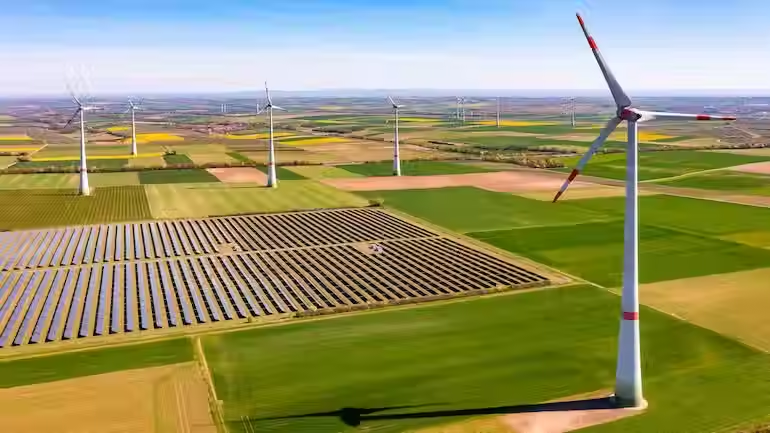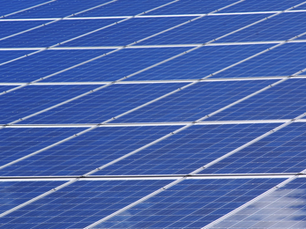Plug-in PV vs EU Policy: Germany Sparks Controversy
- Energy Box

- Jul 18, 2025
- 3 min read
EU Safety Concerns Spark Controversy Over Plug-in PV Systems
Recently, Germany-based renewable energy advocacy group Balkon Solar e.V. , submitted a formal letter to the European Commission’s Directorate-General for Energy, raising concerns over a draft regulation by the International Electrotechnical Commission (IEC).

The group warns that the proposed changes could negatively impact the deployment of plug-in photovoltaic (PV) systems across Europe.
The letter arrives amid heightened regulatory scrutiny. In France, the authorities have begun tightening rules on plug-and-play solar systems. One major concern is electrical safety: when such systems feed power into the grid via a standard socket, they may cause overload, insulation degradation, or even short circuits, particularly as household sockets typically lack built-in circuit breakers. This raises the risk of electrical fires.

Another issue lies in grid stability. French regulators worry that large-scale, uncoordinated deployment of plug-in systems may amplify grid fluctuations. Belgium has taken a similar stance, pointing to the absence of standardized interconnection rules for distributed energy systems.
Draft Proposal May Contradict EU Renewable Goals
Notably, the German draft regulation banning plug-and-play systems seems at odds with current EU directives. According to Regulation (EU) 2016/631, systems rated ≤0.8kW–150kW are classified as "Type A" generators and explicitly allowed to operate as plug-in PV systems. Furthermore, the 2024 EU Directive (EU) 2024/1711, Article 15a, calls on member states to promote the deployment of plug-in PV systems up to 800W.
Balkon Solar e.V.’s letter urges the European Commission to intervene and revise the IEC draft to ensure alignment with EU energy policy and climate goals.
Balcony Solar Booming in Germany
The balcony solar concept—compact, affordable, and easy-to-install PV systems—has seen explosive growth, especially across Europe. While the idea originated in Europe, it has since gained traction in other global markets.
According to the German Solar Association, Germany registered 435,000 new balcony solar systems in 2024, adding approximately 426 MW of capacity—more than the cumulative total from all previous years combined. By the end of 2024, the country had over 780,000 registered units, with cumulative capacity exceeding 700 MW. The average system size also increased from 800W in 2023 to nearly 1 kW in 2024.

This rapid adoption has fueled a surge in energy storage installations. In 2024 alone, Germany added around 220,000 battery storage systems paired with plug-in solar setups—a 97% increase compared to 2023. Projections for 2025 estimate over 300,000 systems, with 90% expected to be installed alongside plug-in PV.

Fire Risk Raises Safety Concerns
But are these compact systems entirely safe? Not always. In March 2024, a residential balcony solar plus storage system in Lower Saxony, Germany, caught fire just two weeks after installation.

The affected system included a 1.78 kW plug-in solar array and a 2.4 kWh lithium iron phosphate battery. While the fire was controlled within two hours, it destroyed the home’s heating system and caused serious damage to surrounding structures, forcing the homeowner to temporarily relocate.
Investigations later ruled out battery cell failure, as no swelling or deformation was observed. However, issues were found at the maximum power point tracking (MPPT) connector, which caused abnormal heat buildup. Log data confirmed the fault, along with network communication issues that left the microinverter in a compromised operational state for 10 hours. Eventually, a short circuit at the MPPT connection triggered a system shutdown.
This incident has reignited debates about the safety risks of plug-and-play PV. Experts warn that standard 10A sockets, with a maximum continuous load of 2300W, may not safely support the 2600W peak output from common 4×500W plug-in systems, increasing fire risk from overload or arcing.

Beyond Bans: A Call for Smarter Regulation
While some support the proposed restrictions, many industry voices see the IEC draft as part of a broader battle over energy decentralization. Critics argue that legacy utility frameworks use overly complex standards to maintain centralized control, whereas plug-in solar represents a shift toward energy democratization.
The right path forward, they argue, is not blanket bans—but smart regulation, combining standardization with digital safety solutions. Plug-and-play solar is here to stay, and regulations must evolve to support both innovation and public safety.














Comments